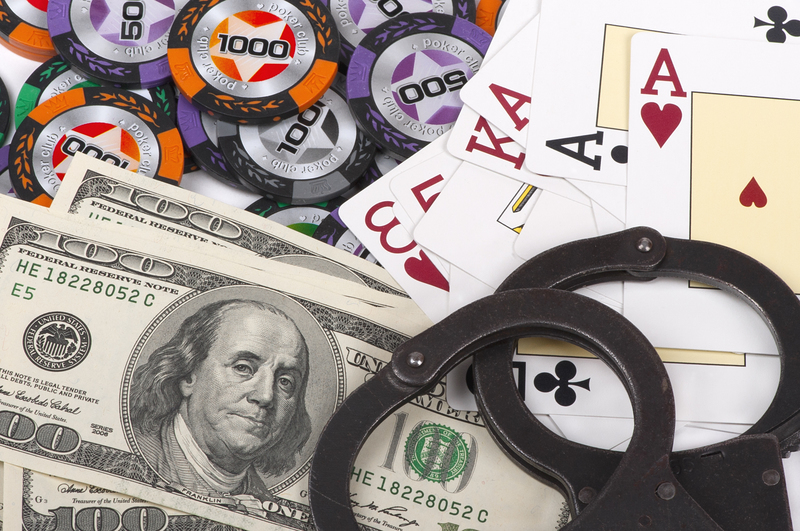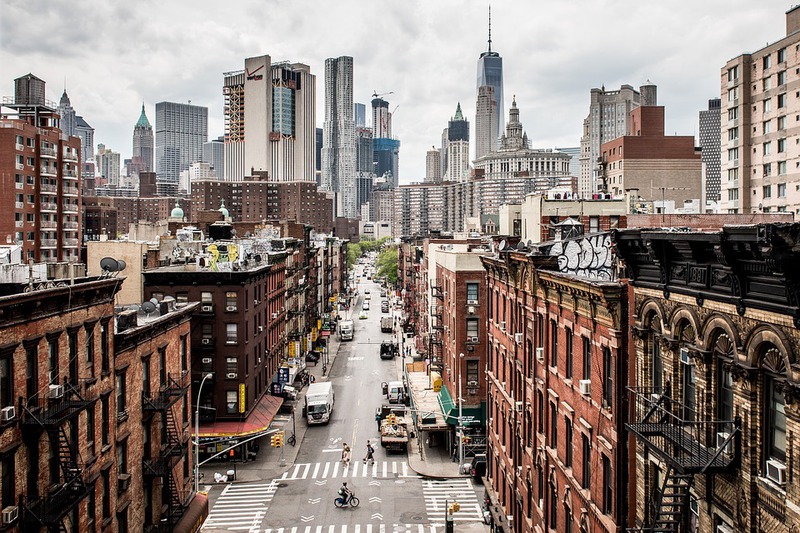






'LeBron James Of Poker' No Superstar, Says Player In Busted Underground NYC Poker GamePoker Player Seeks Return Of $21,000 Bankroll Seized In Raid |
|
|

Underground illicit poker games are common in New York City, but authorities targeted just one of them in an early August indictment. The bust ensnared an India-born woman who allegedly referred to herself as the “LeBron James of poker.”
Local and federal authorities said that Geeta “Mira” Singh was the “lead promoter” and manager of the poker room in a loft above a drug store in the West Village. Singh, who was based out of Atlanta and allegedly used the social networking site Meetup to find new players, was charged with six counts of promoting gambling. She pleaded not guilty.
The raid involved the New York City’s Special Narcotics Prosecutor’s Office. Police claimed that “proceeds of the illegal gambling operation were used to fund” drug trafficking. A total of 32 individuals were arrested across several states for alleged involvement with the poker room and/or drugs. No drugs were found at the poker club, though police alleged that two poker players who had been in the room were “in possession of narcotics prior to making a sale” to an undercover agent.

Saeed. Facebook.
“I was friends with everyone,” Saeed said. “If people needed a break I would help out, but I was there mostly to play. This particular case was linked to drugs, and [they] stumbled upon the poker.”
Saeed said that nearly two months ago at around 1 a.m., police showed up at his apartment and raided it. They “broke two doors, stole my cash and electronics without a voucher and locked me up for 20 hrs,” Saeed said. “I was halfway asleep from an already long day. All for what? A game of cards? They came looking for drugs and found none. I don’t do any.”
He said authorities took his entire poker bankroll of $21,000, which has left him broke and unable to continue playing poker. “I’ve been trying to be a pro for a good 12 years now, but stunts like this create massive setbacks,” he said.
“The investigation was supposedly ongoing since November of 2017,” Saeed added, “so I don’t know why they came [to my place]. They hit 19 places at once and I was no. 10. There is an 81-page indictment of which I am involved in just one [count]. Yet I’m being treated like a borderline drug lord, except that I’m not in jail. It’s half funny, but since it’s my own life I can’t laugh about it. I just want this [case] to be over with.”
Saeed said he “pleaded” with police to leave his bankroll, but it was to no avail.

Singh. Credit:Alec Tabak/NY Daily News
Despite the prevalence of illicit New York City poker, the poker room bust grabbed national headlines after the prosecutor in the case said in a mid-August court hearing that Singh referred compared herself to the NBA superstar. According to Saeed, Singh’s comment was tongue-in-cheek.
Saeed said he was on that wire-tapped phone call when Singh made the LeBron comment. According to Saeed, it was actually a conference call with others involved with the underground club called the Townhouse.
“We were all joking around, and I recall saying [to Singh], ’you’re not even on the bench,’ but they [the authorities] left that part out,” Saeed said. “I think she meant [by the LeBron comment] that she was a good promoter and a player.”
Authorities said that Singh would have new players show a text message from her in order to gain access to the Townhouse. According to Saeed, the stakes were mostly $1-$2 or $2-$5 no-limit hold’em, with the occasional $5-$10. There was sometimes pot-limit Omaha.
Saeed said the Townhouse, which had three tables, was frequented by doctors, lawyers, students, photographers and former police officers, among others.
“Poker is poker,” Saeed said. “It brings people from all walks of life together in a setting where none of that matters.”
Saeed called the Townhouse “well run,” because it would institute a two-hour minimum playing session in order to prevent what is known as a “hit and run” in the poker world. The club also had a $15 maximum rake per pot, much lower than the maximum seen in other New York City poker clubs, he said. Saeed once won a $1,600 pot in a different New York City poker game and the room only let him keep $1,350.
Thanks to the size of the room, the stakes and the rules, Saeed said he played at the Townhouse “religiously.” He had become such a regular in the room during the roughly two years it was in business that the room would sometimes allow him to play on credit. Authorities alleged that Singh was involved with poker in some capacity for about 15 years.
Despite the drug trafficking allegations, it was a friendly group who frequented the Townhouse, according to Saeed. That was the case even when someone lost a large amount relative to the stakes.
“I saw a guy drop $17,000 in one night in four hours and laugh it off,” Saeed remembered. “He was rich and came to have a good time, and I guess he did.”
 Larger issues at play
Larger issues at play
New York City doesn’t have a regulated poker room, so the demand for poker creates an environment where there’s an almost constant stream of games popping up and then folding for whatever reason. Most of the clubs are just a single table, according to Saeed. Saeed sees his case as another example that New York City needs to change its anti-poker laws.
Poker players seek well-run, high-quality rooms, and New York City doesn’t see those as legal. “The police can’t shut all of the clubs down,” said Saeed. “The problem is the police made it seem like drugs were being sold in the club. But the drugs allegedly came from people’s homes they arrested.”
“I think it’s just propaganda to fuel the anti-gambling laws in NYC,” he added.
Underground NYC poker games have attracted some A-list celebrities, such a former New York Yankee Alex Rodriguez, as detailed in the case involving high-stakes poker organizer Molly Bloom. Bloom, whose life as a poker organizer was made into an Aaron Sorkin movie, was indicted over running the Manhattan poker games after the operation was linked to other nefarious activity involving organized crime. Bloom received probation in 2014.
Saeed isn’t seeking some high-profile ending to the Townhouse’s case. He just wants to continue trying to make it as a professional poker player, wherever that may be.
The Townhouse “was great while it lasted,” Saeed said. “Now I just want my money and belongings back because this is turning out to be ridiculous at this point.”
